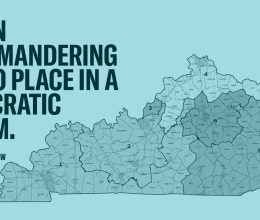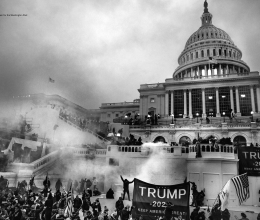
Federal Court agrees that current House and Senate districts unconstitutional
COVINGTON, KY – A panel of three federal judges agreed with the ACLU of Kentucky and the ACLU’s Voting Rights Project that Kentucky’s current House and Senate districts – which were established in 2002 – are unconstitutional.
The ruling, which came in a pair of redistricting lawsuits – one brought by the ACLU of Kentucky and the ACLU’s Voting Rights Project, and the other by a group of Northern Kentucky voters – declared that the 2002 maps violate the Fourteenth Amendment’s “one person, one vote” principle.
The court found that because of substantial population imbalances between the districts, Kentuckians who reside in many overpopulated districts have approximately one-half the voting strength of those in less populated districts. In granting summary judgment to the plaintiffs in both cases, the court found that “the failure of the General Assembly to timely enact a constitutional plan” resulted in “gross deviations” in population equality among the districts that violated the Fourteenth Amendment.
In addition to declaring the 2002 maps unconstitutional, the ruling prevents state officials from using the 2002 maps in any future elections.
“The General Assembly’s initial failure to adopt lawful maps in 2012, combined with its subsequent failure to adopt any maps in 2013, forced the ACLU of Kentucky to bring this lawsuit to ensure that Kentuckians’ voting rights are protected,” said ACLU of Kentucky Executive Director Michael Aldridge. “Unfortunately, the General Assembly, at the governor’s urging, disregarded our admonition last year to accomplish redistricting during the 2013 regular session. As a result, officials will again waste Kentucky’s tax dollars for a special session on an issue that should have been accomplished already.”
ACLU Voting Rights Project Director Dale Ho said: “This ruling guarantees that if the General Assembly fails to timely adopt new maps during the special session, or if it adopts unlawful maps as it did in 2012, the ACLU will be able to immediately bring those matters before the court to ensure that new, lawful maps are in place in time for the 2014 elections.”
Representing the plaintiffs in the ACLU suit are Laughlin McDonald and Dale Ho of the national ACLU’s Voting Rights Project, ACLU of Kentucky Cooperating Attorney Ben Carter, and ACLU staff attorney William Sharp.




